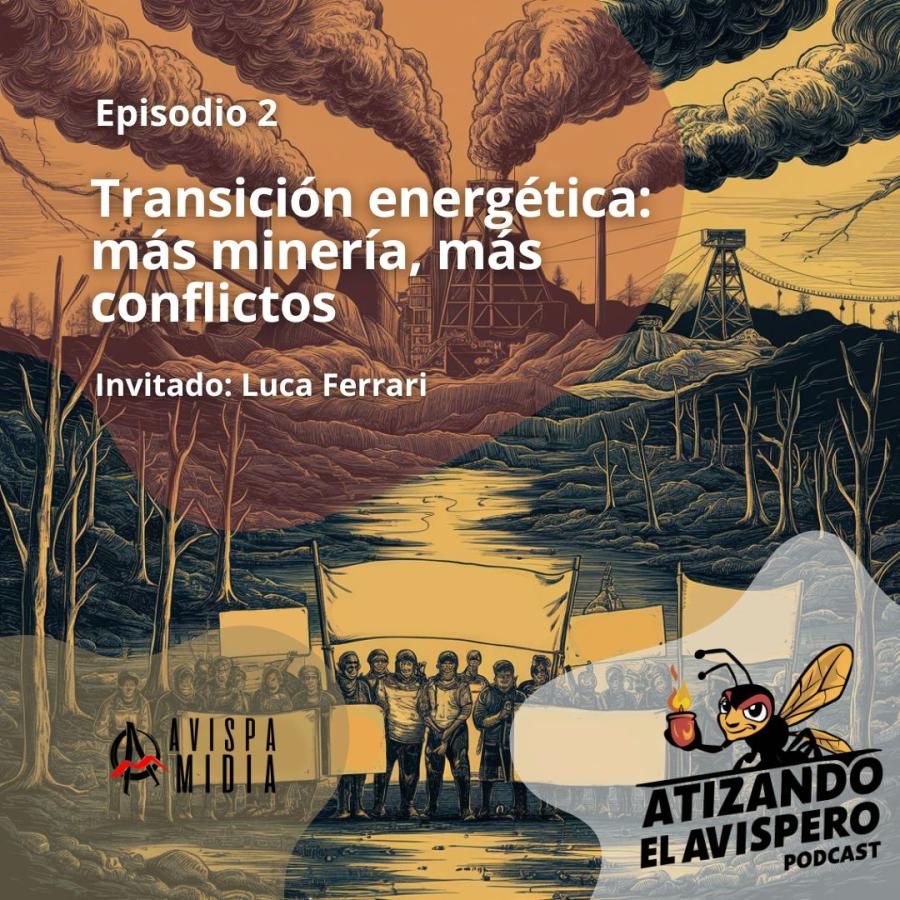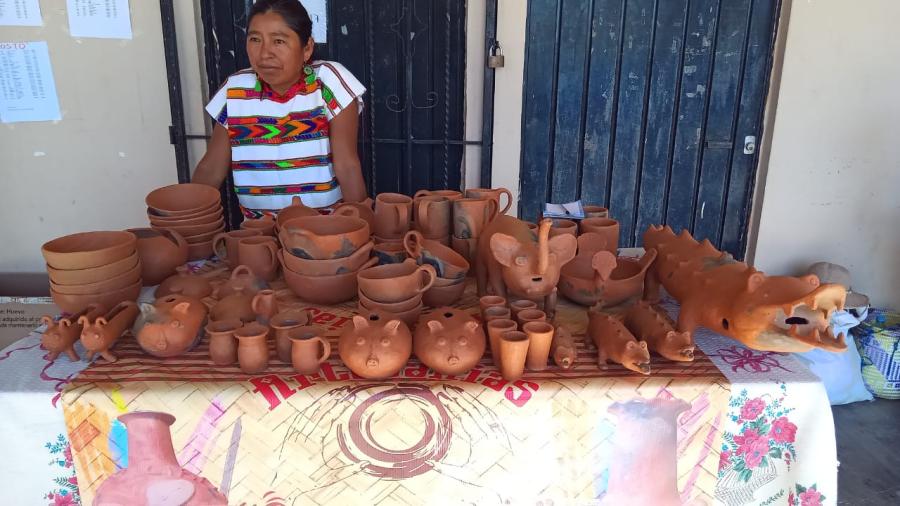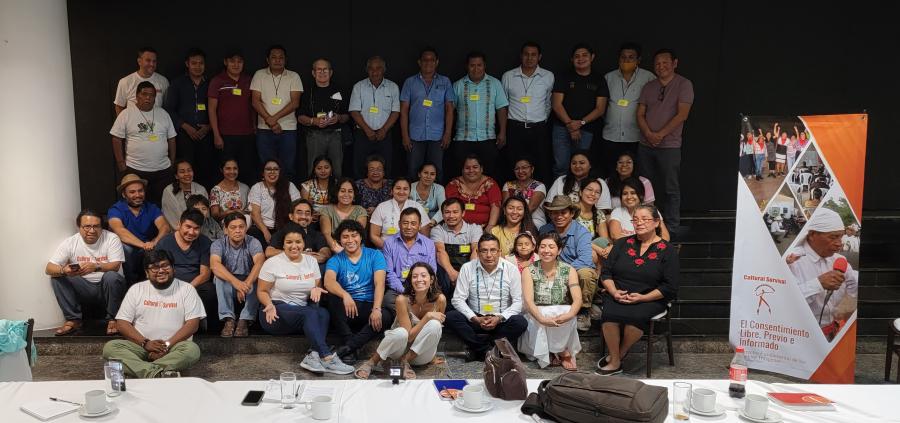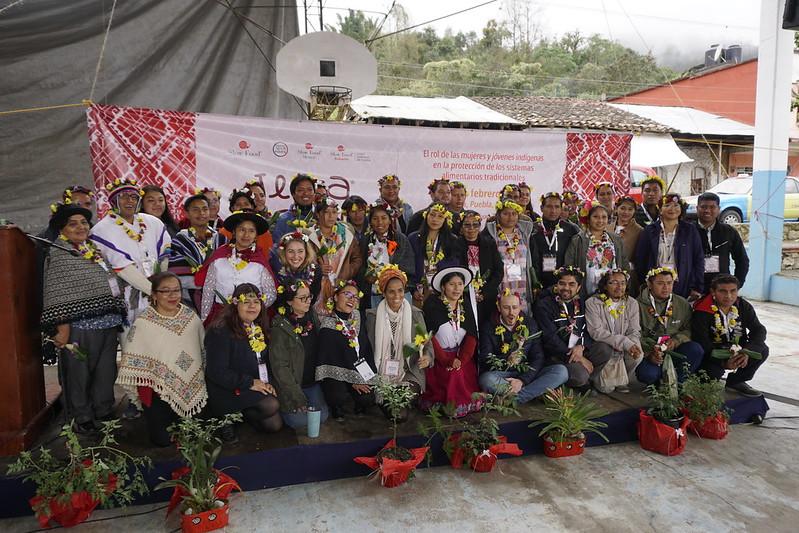
By Bia'ni Madsa 'Juárez López
Tlaola is a small Nahua community in the state of Puebla, Mexico, which positioned itself internationally thanks to a group of women who accepted the challenge of hosting an international event, Terra Madre Indígena de América, which for the first time was held in the Americas. The central focus on the meeting was the role of Indigenous women and youth in the protection of traditional food systems.
Dalí Nolasco (Nahua), member of Slow Food México and Mopampa, commented, “In my mind and heart I thought, I must bring my beautiful Tlaola to the world, they must come, get to know my town, walk the streets, enjoy the rainy green and wet landscape, eat tamales in the garden, greet my neighbors. Let everyone know that we are here!”
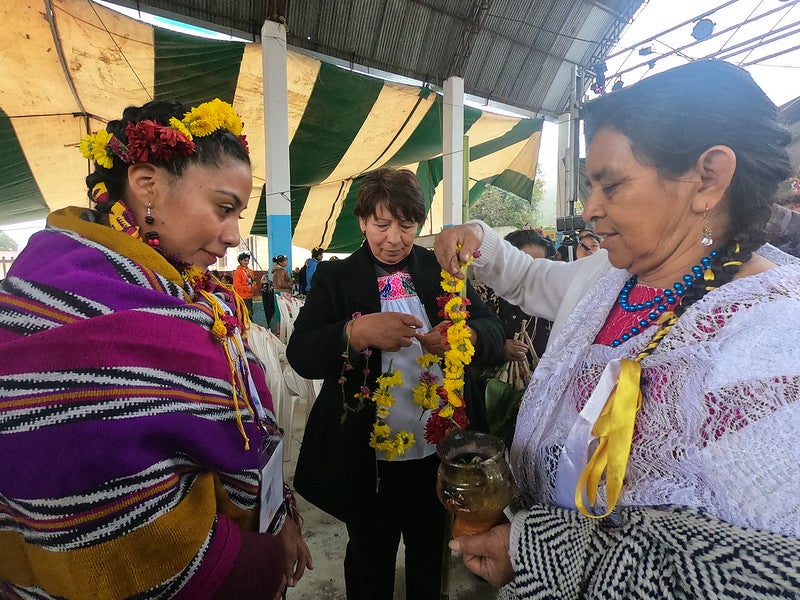
The women hosts of Mopampa have a long history of organization. In 1992, they started cultivating the serrano pepper. Fifteen years later, in 2007, they created the Network of the Organization of Indigenous Women of Tlaola to develop productive projects to improve the living conditions of women. In 2016, they achieved the recognition of the serrano pepper by Slow Food, an organization that recognizes great work in sustainable and agro-ecological practices.
On February 21-24, 2020, 45 Indigenous delegates from Argentina, Bolivia, Brazil, Colombia, Ecuador, Mexico, Peru and the United States, and 20 representatives of international organizations and observers from Italy, Panama, Mexico, Guatemala and the United States; and Indigenous representatives of Nahua, Tsotsil, Maya, Ayuuk, K'iche ', Binizá, Mbya Guaraní, Aymara / Calacalita, Me Phaa, Wichi, Yoruna, Kiriri, Creole Raizal, Inga, Shuar, Afro-Ecuadorian, Kañari-Kichwa, Puruwa Kichwa, Quechua, Raramuri, Chinanteco, Tseltal, Otomí, Mixteco, Chahla, Muskoke, Uma and Guaraní Peoples came together to reflect on their communities, share stories, and connect global production of conventional foods with climate change, loss of biodiversity and conflicts associated with land racism and discrimination.
The months of anticipation work began with an open call in which 141 young people from 27 countries sent in proposals, showing the great need to generate these international intergenerational dialogues.
Slow Food is a global network committed to changing the current logic of agri-food production, for an alternative based on values such as fair trade, a healthy ecological footprint, through traditional foods that protect biodiversity and cultures. In Mexico, there are 36 Slow Food communities dedicated to protecting culturally important foods such as pulque, corn, serrano chile, native honey, vanilla, salt, among many others.
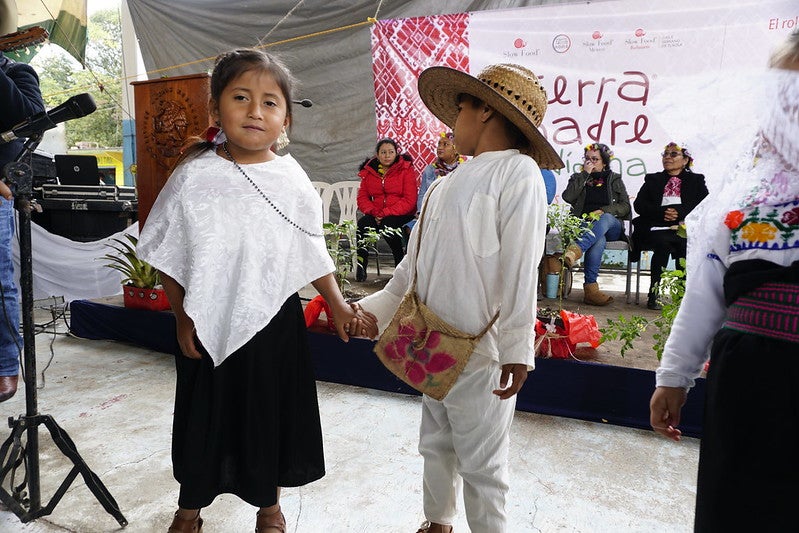
Tlaola was filled with different colors and sounds, the dialogue at the event was mixed with traditional Nahua music in the background, resulting in an exchange of experiences, the formation of strategic alliances, and the strengthening of the network of Indigenous youth and women of Slow Food of America. The participants will return to their communities to continue working the land while influencing public policies locally and internationally.
